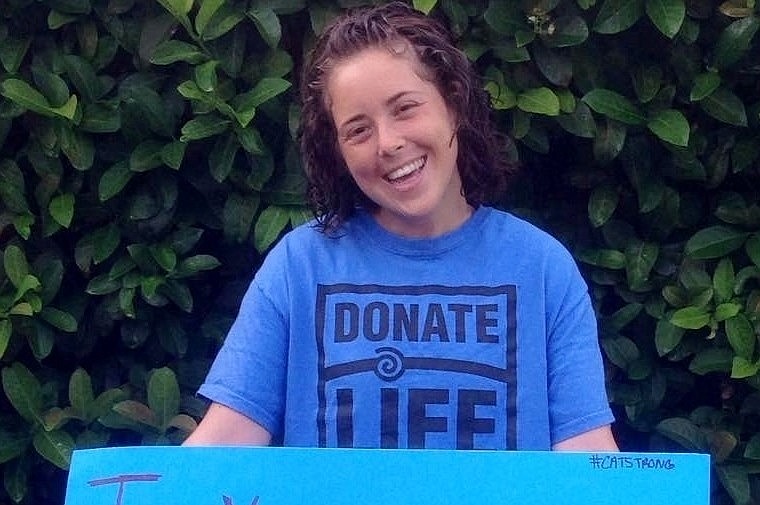- February 1, 2025
-
-
Loading

Loading

Two years ago, lying helplessly in a hospital bed, Cat Bradley asked her mother, Charlotte, if she was going to die. Bradley needed a “grade A” liver.
“That was the toughest moment throughout the entire journey for me,” Charlotte Bradley said. “It was frightening and seriously overwhelming.”
After extreme kidney and liver failure, going into a coma for two weeks, getting transferred from Flagler to Orlando and passing up on four livers, Cat Bradley finally received a liver from a 9-year-old boy who had recently died.
Since the liver transplant, Bradley has met and developed a relationship with her donor’s family, including the sister.
“They have been amazing,” she said. “It’s been very emotional for me, but that kid will always be my hero. My donor has saved many lives, including mine, and I will forever be grateful.”
A recent Jacksonville University graduate, Bradley has made the most of her second chance. She has been relentless and outspoken in her support of promoting organ donations. When she returned to Flagler Palm Coast, where she assists in coaching girls soccer, she was met by nearly the whole team with a special message for her. Because of her life, they became organ donors.
“To have high school girls coming up and telling me that they are organ donors because of me was a huge accomplishment,” Bradley said. “I’m proud of that, and that’s something I want to continue to promote.”
In honor of National Donor Month, Florida Hospital Flagler hosted a flag raising ceremony Monday, April 13. Bradley was chosen to raise the flag after sharing her story. In attendance were several hospital employees, including John Finch, who made the call to transfer Bradley from Palm Coast to Orlando, a decision for which Bradley repeatedly thanked him.
“I was given a second chance, and with my chance I can give hope to another family because of my story,” she said. “Right now, our county is 55% strong with organ donors. I want to get that number to 60. People are waiting for an organ, and some lose hope, because it’s not easy waiting in a hospital.”
She dismissed some of the biggest misconceptions, such as medics won’t save an individual if they think you’re dying, or if someone dies, they won’t be able to have an open casket.
“They don’t know that type of information, when they’re operating on someone,” she said. “It’s not like, in the middle of trying to save your life, they pull out your ID card to see if they can take your organs.”
Bradley drew laughs, when she talked about her lack of concern for those who may be annoyed at her frequent social media posts to promote organ donation. She eventually hopes to, one day, work in the business, so don’t expect her to lose any motivation to spread the message.